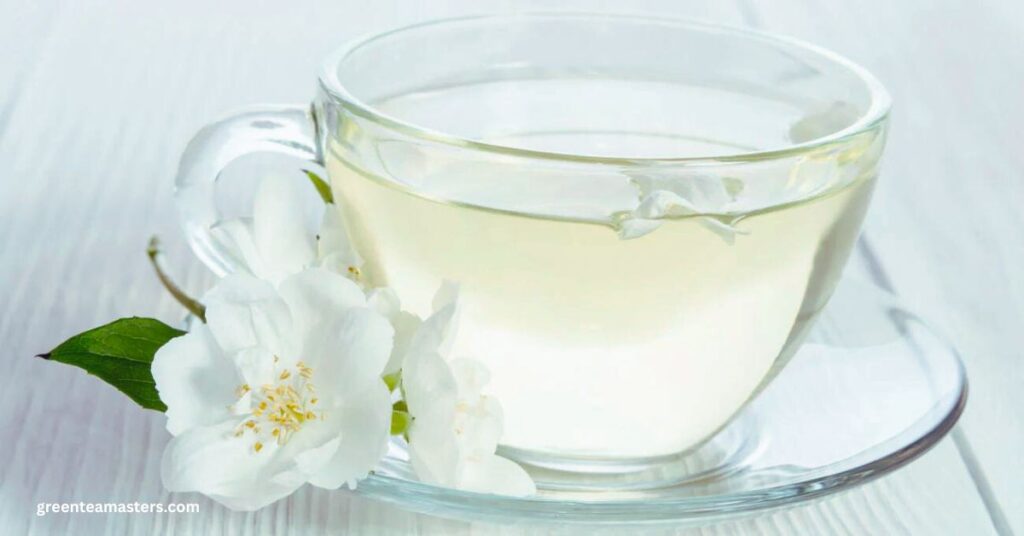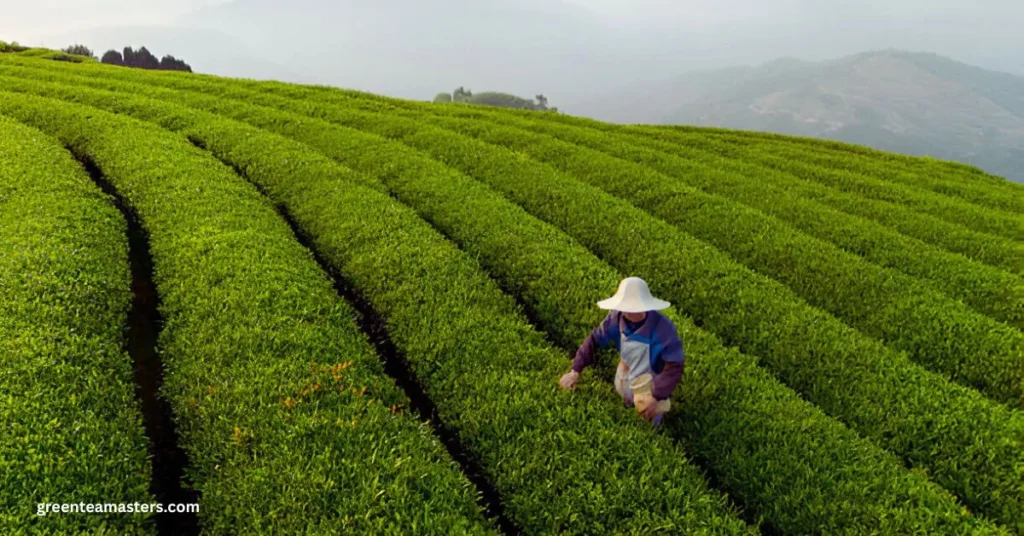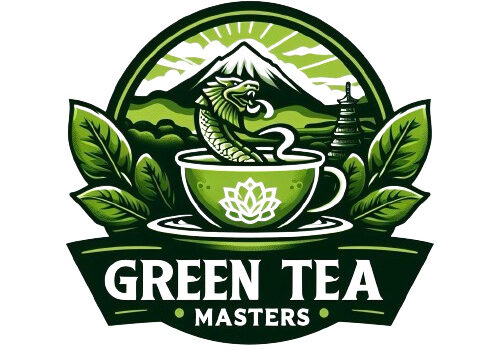When it comes to the battle of antioxidants, both white and green tea pack a punch. Derived from the same plant, Camellia sinensis, these teas are rich in polyphenols – a class of antioxidants that protect our cells from the damaging effects of free radicals. But which one reigns supreme in this antioxidant arena?
Green tea has long been hailed as a superfood, with its catechins (a type of polyphenol) like epigallocatechin gallate (EGCG) garnering much attention for their potent antioxidant properties. However, white tea may just give green tea a run for its money. Studies have shown that white tea contains an even higher concentration of polyphenols and EGCG than its green counterpart.
What Is the Difference in Processing White and Green Tea?

White tea and green tea may hail from the same plant, Camellia sinensis, but the way they are processed is quite different. White tea undergoes minimal processing, which involves simply steaming and drying the young buds and leaves. This gentle process preserves the delicate nature of the tea and retains more of its natural antioxidants and nutrients.
Green tea, on the other hand, goes through a more extensive processing method. After plucking, the leaves are withered, rolled, and then heated (either pan-fired or steamed) to halt oxidation. This heating process gives green tea its distinct flavor and color, but it also leads to some loss of antioxidants and other beneficial compounds.
White Tea Vs Green Tea Growing Areas and Seasons

While both white and green tea can be grown in various regions around the world, they have different ideal growing conditions and harvesting seasons.
White tea is typically grown in the Fujian province of China, where the climate is humid and warm. The young buds and leaves used for white tea are typically harvested in early spring, when the tea plant has just emerged from its dormant winter state. This early harvest allows for the capture of the tea plant’s most delicate and nutrient-rich growth.
Green tea, on the other hand, is grown in many regions across Asia, including China, Japan, and India. The leaves for green tea are typically harvested later in the spring or early summer, when the tea plant has had more time to mature and develop its distinct flavor profile.
Does White Tea Have More Caffeine Than Green Tea?
When it comes to caffeine content, white tea and green tea differ slightly. In general, white tea tends to have a slightly higher caffeine content than green tea, but the difference is relatively small.
The exact caffeine levels can vary depending on factors such as the specific tea variety, growing conditions, and processing methods. However, on average, white tea contains around 28-60 mg of caffeine per 8-ounce cup, while green tea contains around 25-50 mg of caffeine per 8-ounce cup.
It’s worth noting that both white and green tea have significantly less caffeine than coffee, which typically contains around 95 mg of caffeine per 8-ounce cup.
Difference in Taste

While white and green tea share some similarities in flavor, there are distinct differences in their taste profiles.
White tea is known for its delicate, subtle, and slightly sweet flavor. It has a gentle, floral aroma and a smooth, almost velvety texture on the palate. The minimal processing of white tea allows it to retain its natural, nuanced flavors.
Green tea, on the other hand, has a more robust and grassy flavor. It has a slightly bitter and astringent taste, which can vary in intensity depending on the specific variety and brewing method. The heating process during green tea production also contributes to its unique flavor profile.
Overall, white tea is often described as having a more delicate and refreshing taste, while green tea offers a more pronounced and slightly more assertive flavor.
Also Read Black Tea vs Green Tea: Which One is Better for Your Health?
Is White Tea Healthier Than Green Tea?
Both white and green tea offer a wide range of health benefits due to their rich antioxidant content. However, some research suggests that white tea may have a slight edge in terms of overall health benefits.
Catechins in White and Green Tea
One of the primary reasons why white tea may be considered healthier is its higher concentration of catechins, a type of powerful antioxidant found in tea. Catechins, particularly epigallocatechin gallate (EGCG), have been linked to numerous health benefits, including reduced inflammation, improved heart health, and potential cancer-fighting properties.
Due to its minimal processing, white tea retains a higher level of catechins compared to green tea. Studies have shown that white tea can contain up to three times more EGCG than green tea, making it a more potent source of these beneficial antioxidants.
White Tea Vs Green Tea Brewing
The brewing method for white and green tea also plays a role in their overall health benefits and flavor profiles.
White tea is typically brewed at a lower temperature (around 160-180°F or 71-82°C) for a shorter duration (2-4 minutes) to preserve its delicate flavors and antioxidant content. Overheating or over-steeping can cause white tea to become bitter and astringent.
Green tea, on the other hand, is typically brewed at a higher temperature (around 180-200°F or 82-93°C) for a longer duration (2-5 minutes). This higher temperature helps to extract more of the tea’s flavors and antioxidants, but it can also result in a more bitter taste if brewed for too long.
So, Which Is Better: White Tea or Green Tea?
When it comes to the battle between white tea and green tea, there is no clear-cut winner. Both teas offer a wealth of health benefits and unique flavor profiles, making them excellent additions to a healthy lifestyle.
If you’re primarily focused on maximizing your antioxidant intake and potentially gaining an edge in areas like anti-aging, anti-inflammatory effects, and cancer prevention, white tea may be the better choice due to its higher catechin content and minimal processing.
However, if you prefer a more robust and slightly bitter flavor, or if you’re looking for a tea that is more widely available and potentially more affordable, green tea is an excellent option that still provides a potent dose of antioxidants and other beneficial compounds.
Ultimately, the choice between white and green tea comes down to personal preference and individual health goals. The beauty of these teas is that they complement each other perfectly, so why not enjoy both? By incorporating a variety of tea types into your diet, you can reap the full range of benefits that these ancient beverages have to offer.
FAQ
While both offer health benefits, research suggests white tea may have a slight edge due to its higher concentration of antioxidants like EGCG, thanks to minimal processing. However, green tea is still an excellent, antioxidant-rich choice.
Yes, drinking white tea daily is generally considered safe and potentially beneficial. Just be mindful of your caffeine intake, limiting it to around 4-6 cups per day.
White tea typically contains slightly more caffeine than green tea, with around 28-60mg per 8oz cup for white tea and 25-50mg per 8oz cup for green tea. Both have less caffeine than coffee.
There is no definitive “healthiest” tea, as various types offer different benefits. White tea, green tea, oolong tea, pu-erh tea, and herbal teas like chamomile are among the healthiest options due to their antioxidant content and potential advantages. The best choice depends on personal preferences and health goals.

